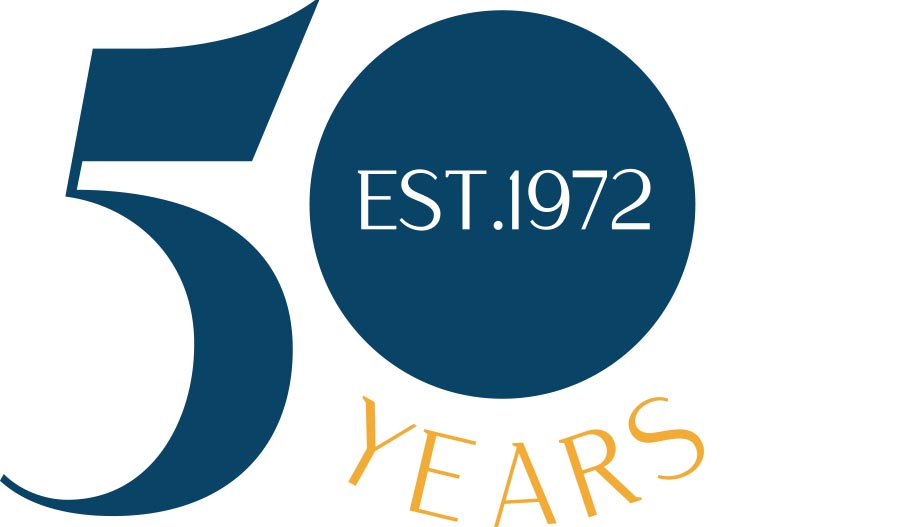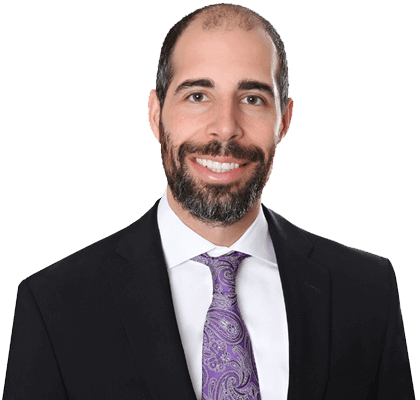PERSONAL INJURY
.
Burlington Personal Injury Lawyers
Most of our lawyers focus their practices on helping people recover compensation after they have been injured by the negligence of others. In addition to car accidents, personal injury claims can arise in many different situations:
- a slip, trip or fall on public or private property
- an injury because of a hazard or dangerous condition in a building or store
- a dog bite or other animal attack
- an accident at a workplace
- an injury when participating in a recreational or organized activity
- …and countless more
However you were hurt, at Martin & Hillyer, we focus on all aspects of your recovery:
- recovering financial compensation for what you’ve lost
- recovering and rehabilitating from your injuries
- recovering an empowered and fulfilling life despite ongoing injuries
Understanding your personal recovery priorities in all three areas and helping you attain them can be difficult for large, out-of-town law offices and offices that are stretched across the province. But our local lawyers will take the time to understand your unique priorities in order to give you the personalized advice you need to reach your recovery goals.
WE CAN HELP
Our local lawyers will take the time to understand your unique priorities in order to give you the personalized advice you need to reach your recovery goals. Learn more about our personal approach and the difference having a local car accident lawyer can make.
Compensation for your Losses
When you are injured as a result of someone else’s negligence or their failure to reasonably ensure your safety, you can start a civil lawsuit to recover compensation for your losses and injuries. Businesses, property owners, municipalities and individuals can all be liable if they caused or contributed to your injuries, or if they had a duty to ensure your safety and failed to do so.
A personal injury lawsuit is about recovering compensation for what you have lost to try to “make you whole again.” This includes compensation for income you have lost or will lose in the future, payment of your past and future treatment costs, payment for assistance and services you need to cope after your injuries, and compensation to recognize the pain and suffering you have had to endure.
We work to gain a full picture of the damages our clients have suffered as a result of an injury, and then advocate tirelessly to help them recover full and fair compensation so they can move on with their lives.
.
HOW LOCAL PERSONAL INJURY LAWYERS CAN HELP YOU
MEET OUR EXPERTS IN PERSONAL INJURY LAW
FREQUENTLY ASKED QUESTIONS
PERSONAL INJURY
Limitation periods restrict how long a person has to start a lawsuit for most types of lawsuits in Ontario. In most (but not all) cases, a person has 2 years from the date of an injury or loss to start a lawsuit against someone. If someone does not start a lawsuit before the limitation date, in most cases they are unable to ever do so – even if they had no idea a limitation period existed.
Sometimes it is tricky to determine a precise limitation date, particularly if your injuries weren’t (and could not have been) clear right away, or if the incidents that caused your injuries took place over an extended period.
Since the consequences of missing a limitation period are so serious, it is important that you speak with a lawyer as soon as possible after you have suffered a loss so that he or she can tell you what limitation period applies. Even if you think you might have already missed the limitation period, you should speak with a lawyer to confirm, since there are sometimes exceptions and ways around the deadline that could save your claim.
In some cases, in addition to a limitation period, you need to worry about a notice period. This is a period of time within which you need to warn the defendant that you are going to sue them in the future. They usually apply when governments are the defendants.
Notice periods are usually much shorter than limitation periods – for example, in most cases you only have 10 days to warn a municipality if you are going to sue it for a dangerous condition on a sidewalk.
Missing a notice period without a very good reason can prevent you from starting your case at all, so again – make sure you speak with a lawyer as soon as possible to ensure no time limits are missed.
It’s important for you to understand how your lawyer will be paid. During your initial consultation, we will speak with you in detail about how our legal fees and expenses will work in your specific case so that you understand all your options before deciding if and how you would like to proceed.
Lawyers usually charge fees in one of three ways:
- A contingency fee is usually used in personal injury and insurance litigation. Under a contingency fee, you do not pay your lawyer’s fees until the end of your case, and the fee depends on the result obtained in your case. Typically, the lawyer’s fee will be a fixed percentage of any amount recovered on your behalf. This means that if nothing is recovered, the lawyer will not charge you a fee. In this way, the risk of litigation can be shared between the client and the lawyer.
When you see headlines in advertising such as “no win, no fee” or “you don’t pay unless we win,” a contingency fee arrangement is what is being referred to. But these headlines can be misleading: what counts as a “win?” Do expenses still have to be paid? How is the fee calculated? We believe it’s important that you understand exactly what a contingency fee is, and what it is not.
- A contingency fee is usually used in personal injury and insurance litigation. Under a contingency fee, you do not pay your lawyer’s fees until the end of your case, and the fee depends on the result obtained in your case. Typically, the lawyer’s fee will be a fixed percentage of any amount recovered on your behalf. This means that if nothing is recovered, the lawyer will not charge you a fee. In this way, the risk of litigation can be shared between the client and the lawyer.
- In most other cases, where a contingency fee is not available, lawyers will charge an hourly rate. When charging on an hourly basis, the lawyer and his or her staff bill you at a set hourly rate for all the time they spend working on your file. Hourly rates are used in most non-litigation work, including real estate, estate planning, corporate and commercial transactions, business law, family law, etc. Hourly rates may also be charged in litigation cases where a contingency fee is not feasible.
- A final option is a flat rate fee, which is only used for routine legal services such as notarizing a document or drafting a simple will or power of attorney.
In addition to fees, lawyers will charge for the disbursements they have to incur when working on your file. Disbursements are expenses that must be paid for over the course of your case and include things like paying court fees, paying doctors for copies of their records or for medical opinions, paying for administrative expenses such as photocopying, couriers and long distance calls, and so on. Disbursements are separate from the lawyer’s fee for the services they provide.
To find out more about the legal fees and expenses that would apply in your case, get in touch with us to arrange a consultation.
Martin & Hillyer Associates has been providing quality and reliable personal injury representation to our clients for over 49 years. We pride ourselves on our attention to detail, and our individualized approach to each case.
As of July 1, 2021, the Law Society of Ontario is requiring all lawyers offering contingency fee agreements to publish the maximum percentage charged on their website. The maximum fee percentage that Martin & Hillyer Associates will charge for personal injury cases is 30%, plus HST. During our free initial consultation, we will discuss the possibility of a contingency fee agreement and the percentage applicable to your case. We believe it important to be transparent when discussing legal fees and will be pleased an answer any questions you have.
Limitation periods restrict how long a person has to start a lawsuit for most types of lawsuits in Ontario. In most (but not all) cases, a person has 2 years from the date of an injury or loss to start a lawsuit against someone. If someone does not start a lawsuit before the limitation date, in most cases they are unable to ever do so – even if they had no idea a limitation period existed.
Sometimes it is tricky to determine a precise limitation date, particularly if your injuries weren’t (and could not have been) clear right away, or if the incidents that caused your injuries took place over an extended period.
Since the consequences of missing a limitation period are so serious, it is important that you speak with a lawyer as soon as possible after you have suffered a loss so that he or she can tell you what limitation period applies. Even if you think you might have already missed the limitation period, you should speak with a lawyer to confirm, since there are sometimes exceptions and ways around the deadline that could save your claim.
In some cases, in addition to a limitation period, you need to worry about a notice period. This is a period of time within which you need to warn the defendant that you are going to sue them in the future. They usually apply when governments are the defendants.
Notice periods are usually much shorter than limitation periods – for example, in most cases you only have 10 days to warn a municipality if you are going to sue it for a dangerous condition on a sidewalk.
Missing a notice period without a very good reason can prevent you from starting your case at all, so again – make sure you speak with a lawyer as soon as possible to ensure no time limits are missed.
The vast majority of lawsuits in Ontario settle before they go to court. A settlement is where both sides in the lawsuit voluntarily agree to a compromise in order to resolve a dispute without the costs, risks and delays that come with taking a case to court. If your case is settled, the defendant will agree to pay you some amount of money for your damages, and in exchange, you will agree to drop your lawsuit.
While you won’t have to go to court if a case settles, there are other preliminary stages your case might go through that you will have to participate in.
A settlement has to be voluntary for both sides, and we can’t force a defendant to settle. Even if a defendant makes an offer to settle, if the offer doesn’t adequately compensate you for your losses, it may be our advice that you not settle your case.
If a case does not settle, you can go to court to have a judge or jury make a final decision. Going to court increases the costs and risks in your case, but sometimes, where a reasonable settlement is not possible, it is the only way to reach a fair outcome.
We will be there to advise you and represent your interests throughout any settlement negotiations, and throughout a court case if one is necessary. In all cases, the decision about whether to settle your case or to take it to court will be yours to make.
When you bring a claim against someone or something (like a company) that has caused an injury to you, you must specifically identify the person, persons, or corporation responsible for your injury. And even though you might be suffering from a serious injury, and be upset that you were injured, you might still have some concern about what will happen financially to the person you are suing. You might wonder:
- If I sue someone will that person lose their home?
- Will I cause that person to become bankrupt?
And, perhaps of most concern to you from a financial perspective:
- Will that person or company have enough money to pay me proper compensation?
The good news is that for motor vehicle claims, it is the law in Ontario that everyone owning a car must have insurance for those who are driving the car. This requirement is set out in the Compulsory Automobile Insurance Act. So if you are injured in a car crash and feel that you should be entitled to compensation for your pain, income losses, or other expenses, rest assured that in most circumstances, it will be an insurance company that is paying for your claim – not the individual person who actually caused the car crash.
The same reality applies to the majority of claims that people make who are injured as a result of the negligence of businesses. People are often injured as a result of errors committed by businesses or corporations, such as failing to properly clear ice from a property, failing to install adequate handrails on stairways, or failing to maintain driveways and walkways free of potholes and other hazards. And these are not the only ways that people can be injured as a result of the negligence of individuals, businesses or corporations! But no matter how the injury occurred, the majority of businesses and corporations carry liability insurance, so that if someone is injured on their property or in their store, there will be an insurance policy there to compensate the injured person for any negligent acts or errors that caused or contributed to the person’s injury.
Unfortunately, no. Lawyers and judges are prohibited from informing juries when there is an insurance policy involved that will be paying out the claim being made by the injured person for compensation. So it is important that everyone understand that the majority of claims being made as a result of an injury that occurs while driving a car, or an injury that occurs while people are attending at a business will likely involve an insurance company that will pay out any claims successfully made against the person or business. That is, after all, why all of us have insurance – to provide financial protection to us in the event that we unintentionally injure other people through our acts or failure to act.








